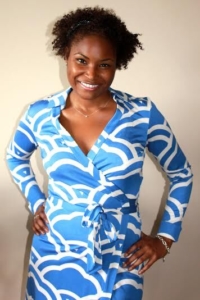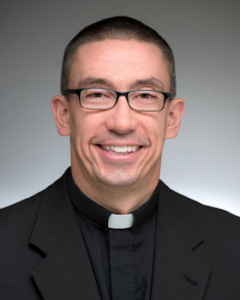Absorb A Problem-Solving Methodology
“My NYU Stern business school experience really taught me how to analyze marketplace, operational, and financial firm data to identify the best way forward. Put another way, business school has taught me how to really think through problems methodically. When solving complex professional problems, there is often a myriad of data points to consider and no true right answer to how to proceed. It was while learning how to crack business school case studies and interpret the accompanying exhibits that I understood how to practically apply my business school learnings to real world, everyday work challenges and come up with viable solutions.” – Shanise R. Anderson / New York University, Stern School of Business
“Refined thinking. We encounter situations related to strategy-making, leadership, marketing, people behaviors and finance that need more refined thinking to be able to make good decisions – thinking that requires us to peel off layer after layer until we arrive at a logical solution. IMD equips you with those tools and methods, laced with examples from real life business experiences and an approach to practicing refined thinking.” – Satakarni Makkapati / IMD Business School
Motivation Matters
“Inspiration goes allot further than perspiration. As leaders, our biggest challenge is not necessarily to find the next blue ocean, create a wining aspiration or develop a compelling value proposition but rather to find the right ingredients when it comes to leading, motivating and breeding environment to foster innovation. The school reminds you of this simple yet difficult obstacle, we sometimes forget the word ‘people’ in people management.” – Flavio Palaci / IESE Global Executive MBA
Reflect And Find Your Passion
“Besides acquiring a thorough understanding of how markets work, which I think will be critical for my future career, perhaps the biggest lesson was the rediscovery of what I love doing and how this can shape my future decisions. I found that career choices made early are affected by different pressures and motivations. However, Business school allows for a soul searching process that I never did before to such a depth: in my case, I realized of my passion for Corporate Finance and my desire to pursue opportunities where I can fully utilized this newly acquired knowledge!” – Dulce Altabella Lazzi / IE Business School
Collaboration Over Competition
“It’s not always a competition, in fact, sometimes there isn’t any competition at all. This sounds like an obvious lesson – school should be about learning and growing. However, in my experience, there are always some undertones of competition – that acquaintance that doesn’t have the assignment so [he] can’t tell you or that friend that is too busy to help you study. Somehow, someway, competition always seems to exist at school, at work and even in our hobbies. It was certainly something I expected from an institution like MIT. However, in this program, knowledge, growth and friendships are valued above all else, very few people are concerned about grades and everyone cheers on their peers. People are quick to help out and eager to see others succeed. I’ve learned that sometimes, like in this program, competition doesn’t even exist. There are just too many other important things with which to be concerned.” – Ashley Sager / MIT, Sloan School of Management
Make Decisions For The Right Reasons
“The biggest lesson I gained from business school reinforced the belief that we need to make decisions in life that are honest and focus on improving the welfare of the community whenever we are called to act. Physicians take a pledge (Hippocratic Oath) at the time of graduation from medical school. Paraphrased, the oath instructs physicians to treat the sick to the best of one’s ability and judgment. The Smeal honor code in a very real sense is similar to the Hippocratic Oath. “We, the Smeal College of Business community, aspire to the highest ethical standards and will hold each other accountable to them. We will not engage in any action that is improper or that creates the appearance of impropriety in our academic lives, and we intend to hold to this standard in our future careers.” – Steven Mark Ettinger / Penn State University, Smeal College of Business
“I am not sure if this qualifies as the biggest lesson, but I was really pleased to see the emphasis on the ethical and people-related issues and challenges faced in today’s multi-cultural and global business environment. The soft skills needed and the ethical challenges faced by business professionals today are so critically important to being successful in business. And the lessons learned, and maybe even the challenges presented and pondered on at school, were invaluable. Understanding the mechanics, math, best practices, and quantitative analysis in decision making is expected at school, and demanded to be successful in the business world. And I was taught these things with rigor, but the greatest lessons came from applying that same rigor to the challenges of people, cultural differences, and ethical decision making. The biggest lesson was that the two go hand in hand, quantitative and qualitative decision making, one without the other makes for bad business, and bad decision-making.” – Stacey Mueller / Purdue University, Krannert School of Management
Ask The Right Questions
“I don’t need to have all the right answers, but I have to be prepared to ask all the right questions at the right time.” – Gregory Fortner / University of Michigan, Ross School of Business
“I learned how to ask the right questions. As a physician, I’m used to being the expert, so it was harder for me to accept that I don’t know absolutely everything. School also taught me how to listen to the answers given – consider them and put them together in a way that best accomplishes the goal.” – Meera Atkins / Northwestern University, Kellogg School of Management
Keep It Simple and Succinct
“[I learned] the importance of synthesizing complex ideas / concepts into simplistic talking points. Also, when you speak in class, speak with a purpose. Each minute is valuable and if an idea you have detracts from the lesson or concept then you are wasting the students (and the professor’s) time and money.” – Kevin M. Smith / Georgia Institute of Technology, Scheller College of Business
Put Forth The Effort
“At the end of the semester, Prof. Miller said to the entire class “There is nothing in life that you can’t sort out if you commit the time. Don’t give up!” I continue to be grateful for this helpful reminder.” – Father Pete McCormick / University of Notre Dame, Mendoza College of Business
DON’T MISS: CLASS of 2015: THE BEST EXECUTIVE MBAs
TOP EMBA STUDENTS NAME THEIR FAVORITE PROFESSORS









Questions about this article? Email us or leave a comment below.